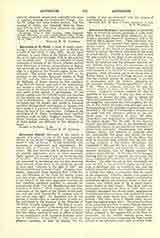

Advocates of St. Peter, a body of jurists constituting a society whose statutes were confirmed by a brief of Leo XIII, July 5, 1878. As the name indicates, its main object is the defense of the Holy See in its rights and privileges, both in the spiritual and temporal order. It binds its members to refute calumnies of enemies of the Church, whether derived from distortions of history, jurisprudence, or dogma, but above all are they to devote their legal knowledge to a defense of the Church‘s rights before civil tribunals. The society was formed in 1877, on the occasion of the Golden Episcopal Jubilee of Pope Pius IX, and the Advocate Count Cajetan Agnelli dei Malherbi, of Rome, became its first president. Pope Pius IX warmly approved of the undertaking, and desired a wide extension of the society, as the immunities of the Church need defense everywhere, and under every system of government. It has spread rapidly over the Catholic world, and branches of the society are found among the principal nations of Christendom. The ordinary members must be jurists, but the society also enrolls as honorary members distinguished ecclesiastics or laymen who have made it a practice to defend Church interests along the lines of this organization. Colleges of the Advocates of St. Peter, numbering many hundred members, exist in Italy, England, Austria, France, Spain, Germany, Canada, and South America. All of these bodies are affiliated to the directory in Rome.
WILLIAM H. W. FANNING

